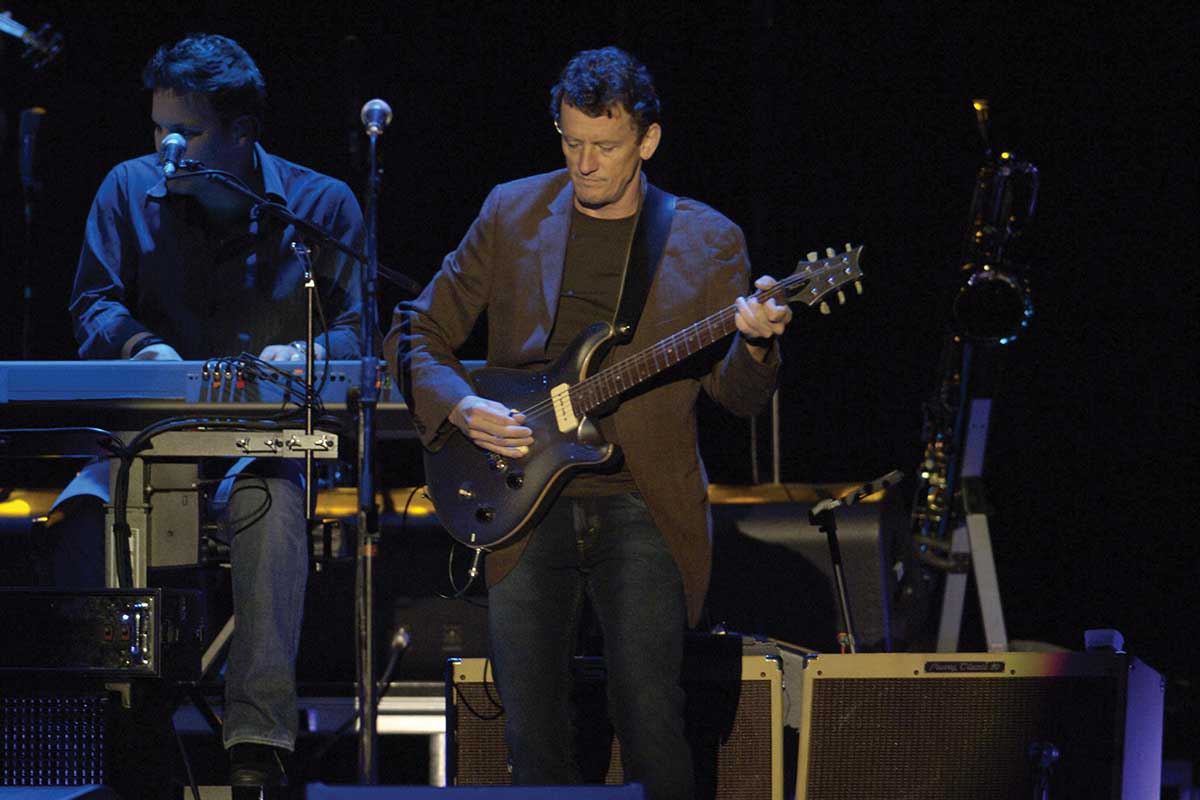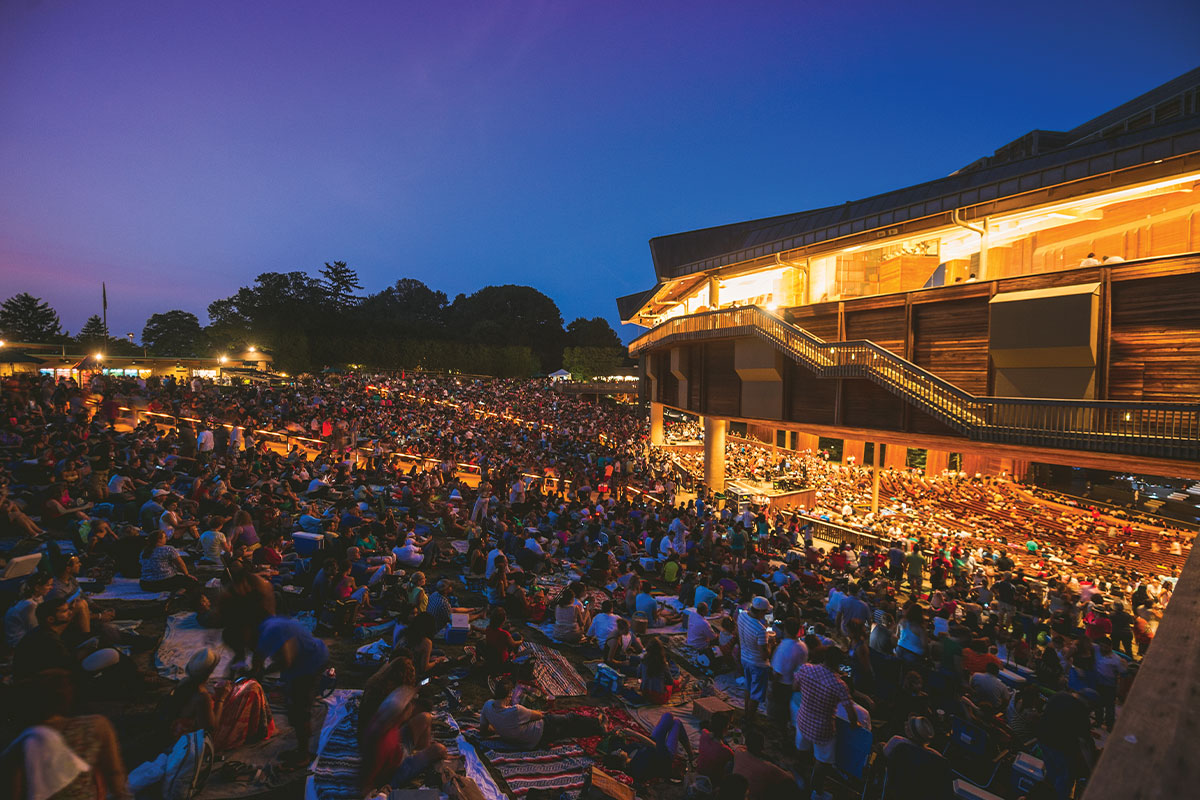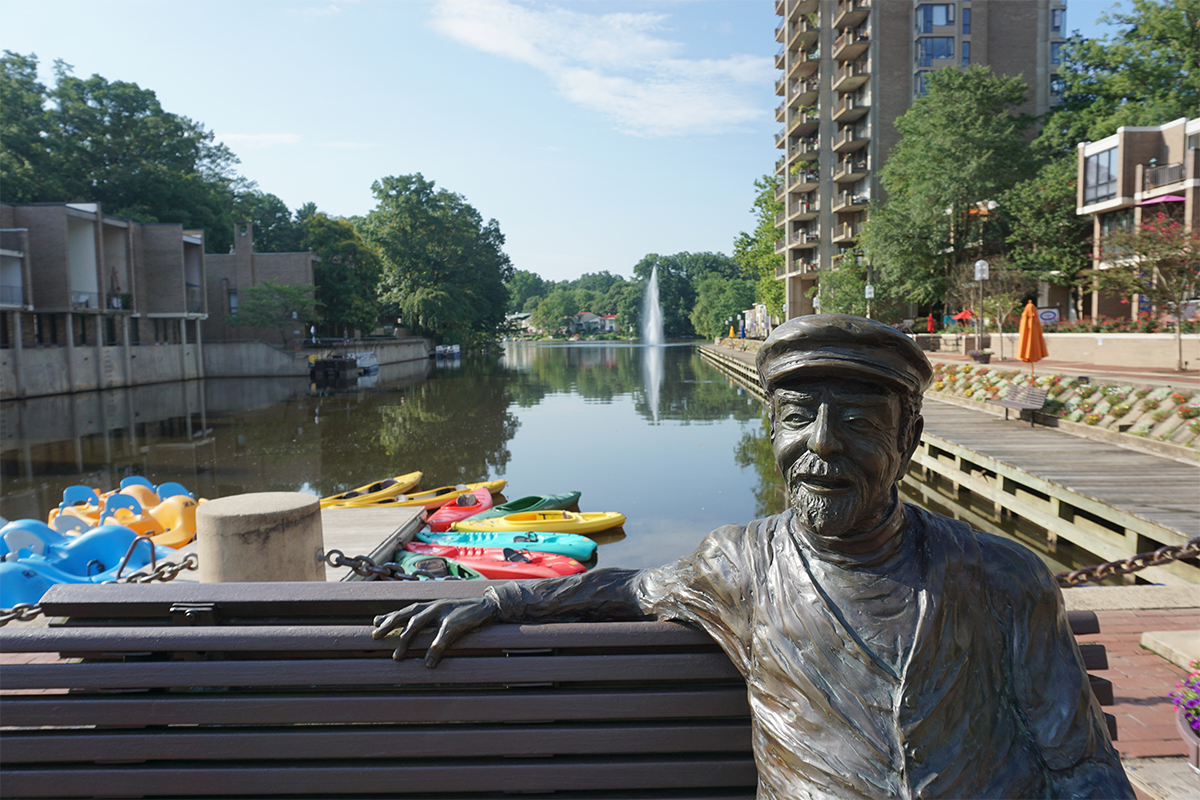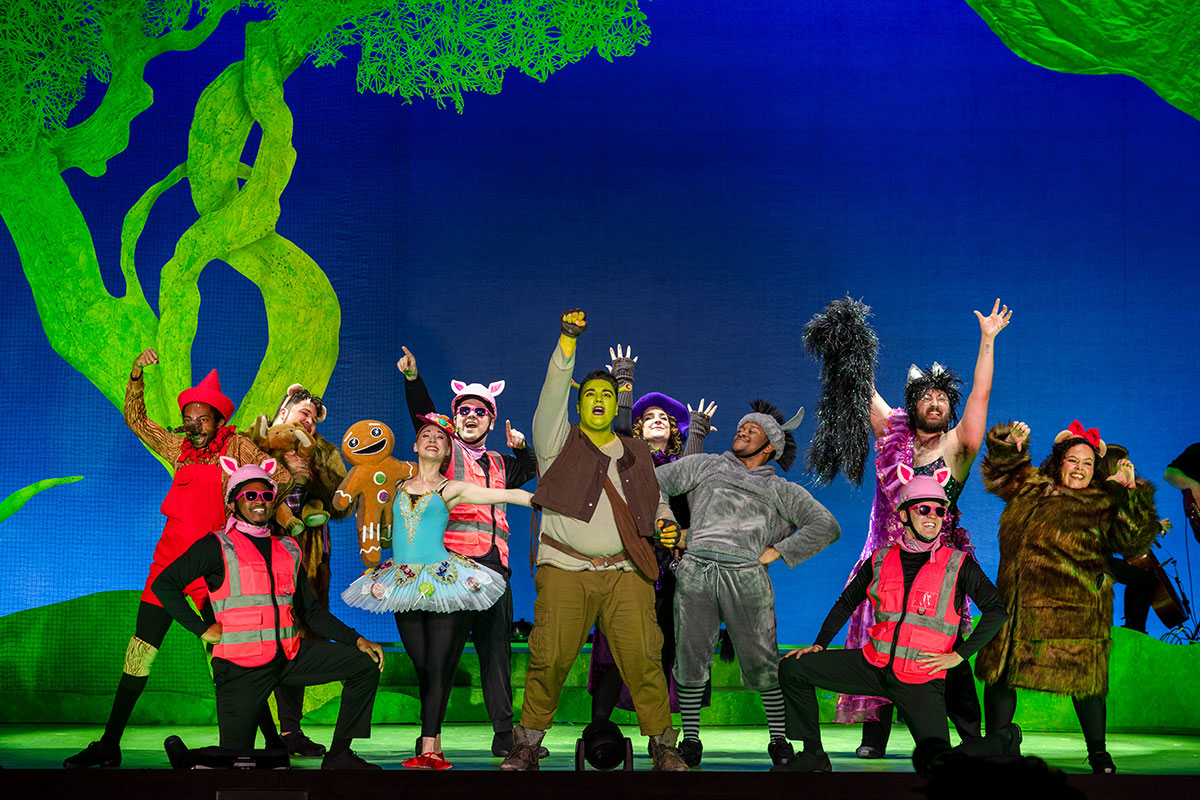When Steuart Smith finds himself out in the public, which is rare because he is intensely private, and someone asks what he does for a living, “I tell them I’m a freelance musician,” he says.
The former Arlington and Falls Church resident is not being misleading because he is indeed one of the country’s most-called-on studio guitarists—known in the entertainment business as a “session” musician. He’s appeared on albums and on stages with countless popular musicians, most of them country, ranging from Dolly Parton and Wynonna Judd to Trisha Yearwood and Rosanne Cash.
But since 2001, Smith, 68, has been a studio and tour guitarist for a band that even the least-aware pop culture observer has heard of and knows its music by heart. Who among us is not familiar with “Life in the Fast Lane,” “Take It Easy,” “Peaceful Easy Feeling,” “Desperado,” “Take It to the Limit,” “Best of My Love,” “Lyin’ Eyes” and “Heartache Tonight”?
No clue? OK, how about “Hotel California”? Everybody now: “On a dark desert highway, cool wind in my hair … ”
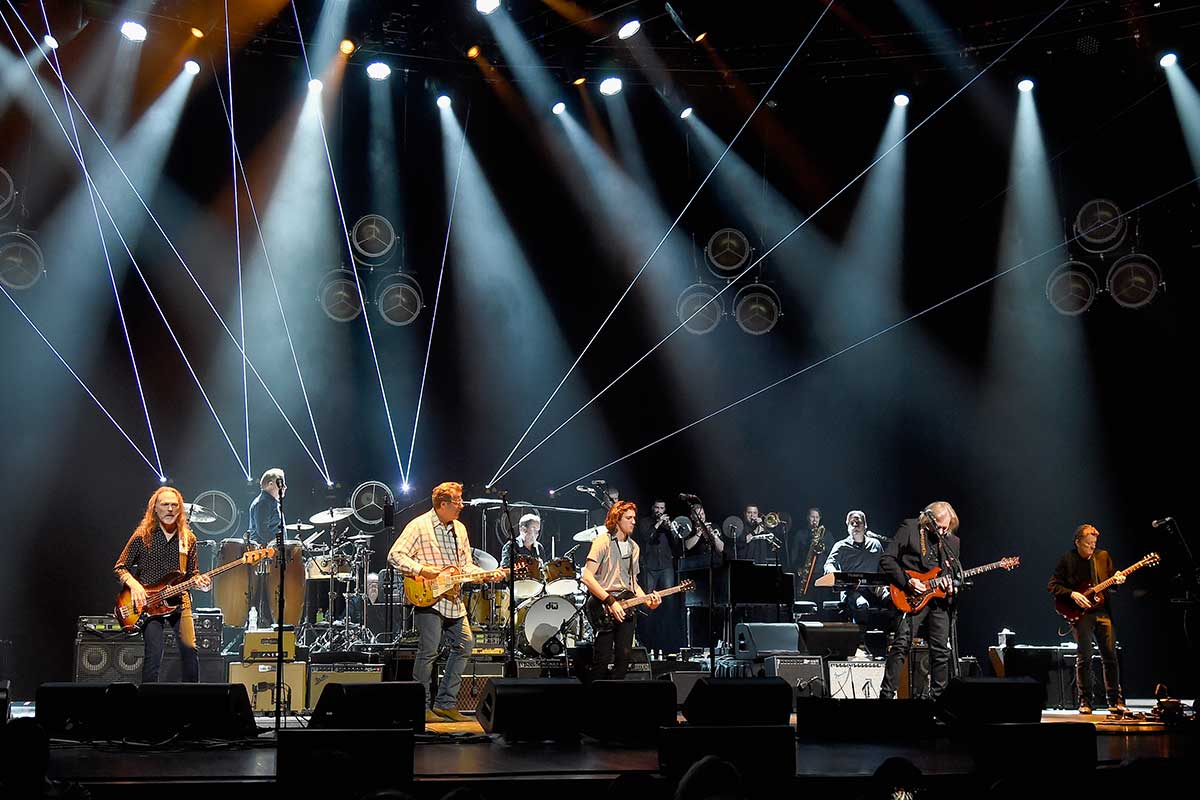
For 20 years, Smith has been the guitar player standing on the stage with the Eagles, onstage but just out of the spotlight. You can see why he’s hesitant to name-drop his longtime employer. “The problem with being with such a well-known group is that it’s not going to be a brief conversation, you know?” he says.
Smith was born and raised in Baltimore—his father was a systems analyst; his mother was a registered nurse—and lived in Falls Church and Arlington before being discovered—the first time—by a music executive who introduced him to the big time.
Despite two decades of exposure with one of the top-selling bands in history—in fact the best-selling band, as we will see—as well as performing on and producing gold and platinum records for others, Smith remains pleasantly neutral in his relatively under-the-radar status. He couldn’t have a better, more generic last name for hiding in plain sight.
And he’s OK with that.

“I’ve always had a certain level of under-the-radar anonymity. I’m not a big fan of doing interviews—but I’m totally happy to do this,” he says in a phone call from his home in Salem, Massachusetts. “There’s been an advantage for me [being less known]. I like to say I keep getting discovered. People say, ‘Oh, I found this guy, and he’s really good, and no one has ever heard of him.’”
By keeping his affiliation loose, he has been able to continue to play and create with other musicians, which is important to him. Regardless, he says, the decision to accept Glenn Frey and Don Henley’s offer to join the ensemble was not immediate. Anyone else might have jumped at the career-making opportunity. In fact, it took two weeks for him to make up his mind.
Henley said to Smith at the time, “I’m talking about serious employment here,” Henley recalled in a 2017 interview. Serious employment, indeed, even if you are joining a band that’s already 30 years old. Let’s put that into perspective with a bit of astonishing rock and roll history:
Fifty years ago, Frey, Henley, Bernie Leadon and Randy Meisner decided to leave rising star Linda Ronstadt and start their own band. In 1972, they struck platinum with the release of their debut album, Eagles. Their clean harmonies, sincere story-songs and precise, guitar-based instrumentation struck a chord in the national zeitgeist. It still does.
Disappointed in the move away from a more countrified sound, Leadon left the band and was replaced by Joe Walsh, a successful solo artist who added more rock energy to the easy-going, laid-back folk-rock Eagles—in fact, “Best of My Love” was No. 1 in the Easy Listening category that year. The fans liked the switch up and remained devoted.
That devotion has resulted in staggering statistics. The Eagles’ Their Greatest Hits (1971-1975) is the top-selling album of all time, surpassing the likes of Elvis Presley, the Beatles, Pink Floyd, Madonna and others you might have likely put down as a losing answer in a trivia contest. Their Greatest Hits, a 10-song collection, has sold 38 million copies and counting, according to the Recording Industry Association of America.
Remarkably, the No. 3 best-selling album of all time—do we really need a drumroll?—is the Eagles’ Hotel California, with 33 million copies sold. If not for a little ditty by Michael Jackson called “Thriller,” the Eagles would have both the No. 1 and No. 2 best-selling records of all time.
The 2001 firing of guitarist Don Felder, who came aboard in 1974, over a money dispute (Smith says it was more complicated, but he’s not clear and has never asked for the details) might have shattered lesser bands. But the Eagles’ founders Frey and Henley, along with by-now-longtime mainstays Walsh and Timothy B. Schmit, who joined in 1977—were in for the long run (yes, a song title pun).
They needed a ready-made replacement. They needed someone creative in their own right who could play delicate, melodic and intensely well-known rock guitar parts in front of rapt audiences of a gazillion-thousand fans in monstrous arenas around the world. They needed a guitarist who wouldn’t try to steal the band’s thunder by creating his own lightning.
They needed Steuart Smith.
Although he spent more of his youth in Maryland and has lived in Salem for years, Smith’s ties to Northern Virginia remain tight. His daughter Sarah, 32, a Yorktown High and University of Mary Washington graduate now working as an editor for a financial information company, lives in Alexandria. In non-pandemic times, he visits the area as often as his schedule allows. (He lives in Salem with his longtime girlfriend, who has family in New England.)
“Whether in the recording studio or onstage, Steuart’s legendary talent as a guitarist and producer have brought him acclaim around the world,” the singer-songwriter Mary Chapin Carpenter wrote to us in an email. “It’s not surprising in the least that [Northern Virginia] claims him as a musical son. I am proud to call him a friend and an inspiration.” (Carpenter should know: That’s Smith on guitar on her Grammy-winning Stones in the Road LP from 1995.)
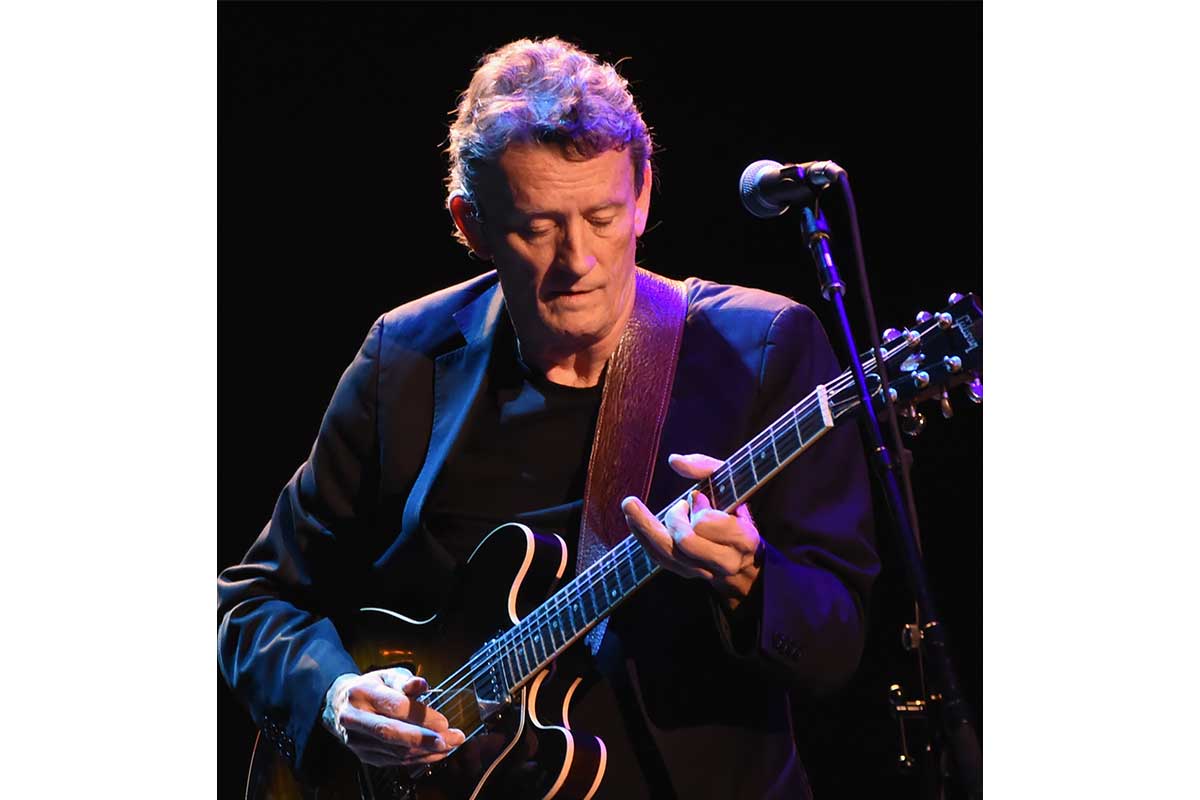
Smith relocated from Maryland in the early 1980s, living at first in Falls Church near Tysons Corner. He later moved to North 25th Street in Arlington’s Yorktown section. In 2005 or 2006, he says, he moved back to Falls Church, “walking distance from Action Music and Cue Studios, and I could check in with them from time to time.” (The very serious guitar store and the professional recording studio are still in business.)
While living in the area, Smith played in regional bands that scraped at national recognition, most notably the outfit known as the Sex Change Band, headed by Washington’s legendary novelty blues rocker Root Boy Slim (best known, such as it is, for “Boogie ’Til You Puke”). When the Washington power pop ensemble Switchblade needed a replacement for founding guitarist Eddie Angel—who started the Nashville-based, Mexican-wrestling-mask-wearing surf instrumental band Los Straitjackets (look them up)—Smith answered the call from Switchblade bassist Johnny Castle.
“I have to say, of all the people I’ve ever played with—and there is quite a prodigious list, and quite a few were famous—Steuart is probably the most complete musician I’ve ever played with,” says Castle, who recently retired from a long stint with the fabled national/regional band the Nighthawks and played for more than a decade with Grammy-nominated Americana guitarist Bill Kirchen. “He could take anything and make it sound better.”
Was there ever any drama? Every band has drama, right?
“With Steuart? No, never,” he says. “He never pulled a knife on anybody over a bagel.” There’s a pause. “That was me. I pulled a switchblade on Ratso for taking the last bagel at a New Jersey Turnpike stop.”
Ratso is guitarist Jim Silman, an Emmy-winning videographer for CBS (now retired) who tours as Texas troubadour Kinky Friedman’s sidekick (and is a recurring character in the Kinkster’s mystery novels). For several years, Ratso and Smith traded lead guitar duties in Switchblade, dueling each other with ever-faster Fender guitar solos on regional radio hits such as “She Makes Me Rock Too Much.”
It’s thanks to Ratso, in a typically bizarre Ratso way, that Smith is with the Eagles. In 1983, Switchblade’s managers took a stab at arranging a showcase in New York for major record label executives. The idea was to land a contract and start making records. The showcase went well, but no contracts were proffered. “They liked the band, but they didn’t like Ratso,” Ratso confides.
In the audience that night was Grammy-nominated producer Rick Chertoff (Cyndi Lauper, Joan Osborne), who “apparently took a shine to me,” Smith says. A few years later, Chertoff tracked Smith down and summoned him to New York to work on songs with Scandal singer Patty Smyth. That didn’t work out, but in the spring of 1986, Chertoff introduced him to Rodney Crowell, a country star who was trying to stretch beyond the confines of the genre.
The chemistry worked: Smith played guitar on Crowell’s 1988 sterling album Diamonds and Dirt, which yielded no fewer than five No. 1 singles, a remarkable accomplishment (others who have done that: Katy Perry and Michael Jackson). Smith also served for a significant period as an arranger, producer and touring guitarist with Crowell and his then-wife, Rosanne Cash, Johnny’s daughter.
“I saw Steuart play with Rosanne Cash at The Bottom Line [in New York]; I think it was around 1990,” says singer-songwriter Shawn Colvin. “I told him then, ‘Your playing makes me smile.’ It was more than that, of course. Steuart plays impeccably—and yet still exudes heart and soul. I was about to begin making my second record and needed a guitar player. I knew he was the guy.”
Colvin, who was nominated in 1997 for Song of the Year and Album of the Year for the breakout hit “Sunny Came Home,” first featured Smith on her 1992 album, Fat City. Touring on the strength of that record with Smith and bassist and producer Larry Klein was special, she says.
“Not only do I consider that configuration the best group I’ve ever been a part of—we just read each other’s minds—but I’ve never had so much fun offstage as with those guys. We are all friends for life.”
The key to Smith’s legendary skills with a guitar, Colvin says, is that “he’s a practicing maniac, always has been. I mean, he would go to his hotel room and practice after the gig if he wasn’t pleased with his performance. He always sounded amazing to me, but he is a perfectionist. Obviously, it pays off.”
“He is, easily, one of the most versatile guitar players ever,” says Vince Gill, who “first crossed paths [with Smith] when he was playing and working with Rodney Crowell. He played on some of my records, too; he’s always been one of my favorites.”
Gill, a country music star in his own right, has seen some good pickers in his day, and he’s not bad himself. His 1984 Country Music Top New Male Vocalist Award was just the first of five times he would win the trophy, scoring 21 Grammys along the way. He’s known Smith for 30 years, Gill says, since seeing him perform with Rodney Crowell.
“It doesn’t matter what you throw at him; you know he’s going to deliver,” Gill says, who brought Smith on board to play on his 1994 album, When Love Finds You. “He’s always been that way. Steuart is the hardest worker I’ve ever seen; I’ve never seen anyone practice as hard as Steuart.”
Gill is also an Eagle, an “official” one, since 2017, having replaced the late Glenn Frey, who died in 2016. (Frey’s son Deacon also joined the band.) Gill realizes he and Smith are walking a tightrope every night in front of fans who know every note to every song.
“There’s not a lot of improvising,” he says with a chuckle. “It’s all about part-playing, which is really why those Eagles records are so good; it’s because guys aren’t out there on the end of the stage showing off. And people know those solos; they know the fills. Nothing is taken for granted. Nothing is out of step.”
Smith, Gill says, “is so intuitive, but he’s a great thinker, which I think is a big part of how well he plays.”
The fact that Smith and Gill had a history was key to Gill joining what he’s called “the most important American band in history.”
“I have to be honest with you,” he says. “When I was asked to come in and take the job, I just was so grateful that I had an old ally like Steuart on the other side of the stage to have [my] back.”
Smith and Gill and the rest of the Eagles hope to take the stage at London’s Wembley Stadium in late August to kick off an international tour, their first live outing since the global coronavirus lockdown.
“Since the pandemic kicked in, I’ve been practicing a good bit,” Smith says. “At my age, I have to keep practicing or atrophy will settle in. My fingers are crossed for us to start work as planned in August, but I’m a realist, too, and won’t be surprised if that doesn’t happen. I just hope everyone stays healthy.”
This story originally ran in our April issue. For more stories like this, subscribe to our monthly magazine.

